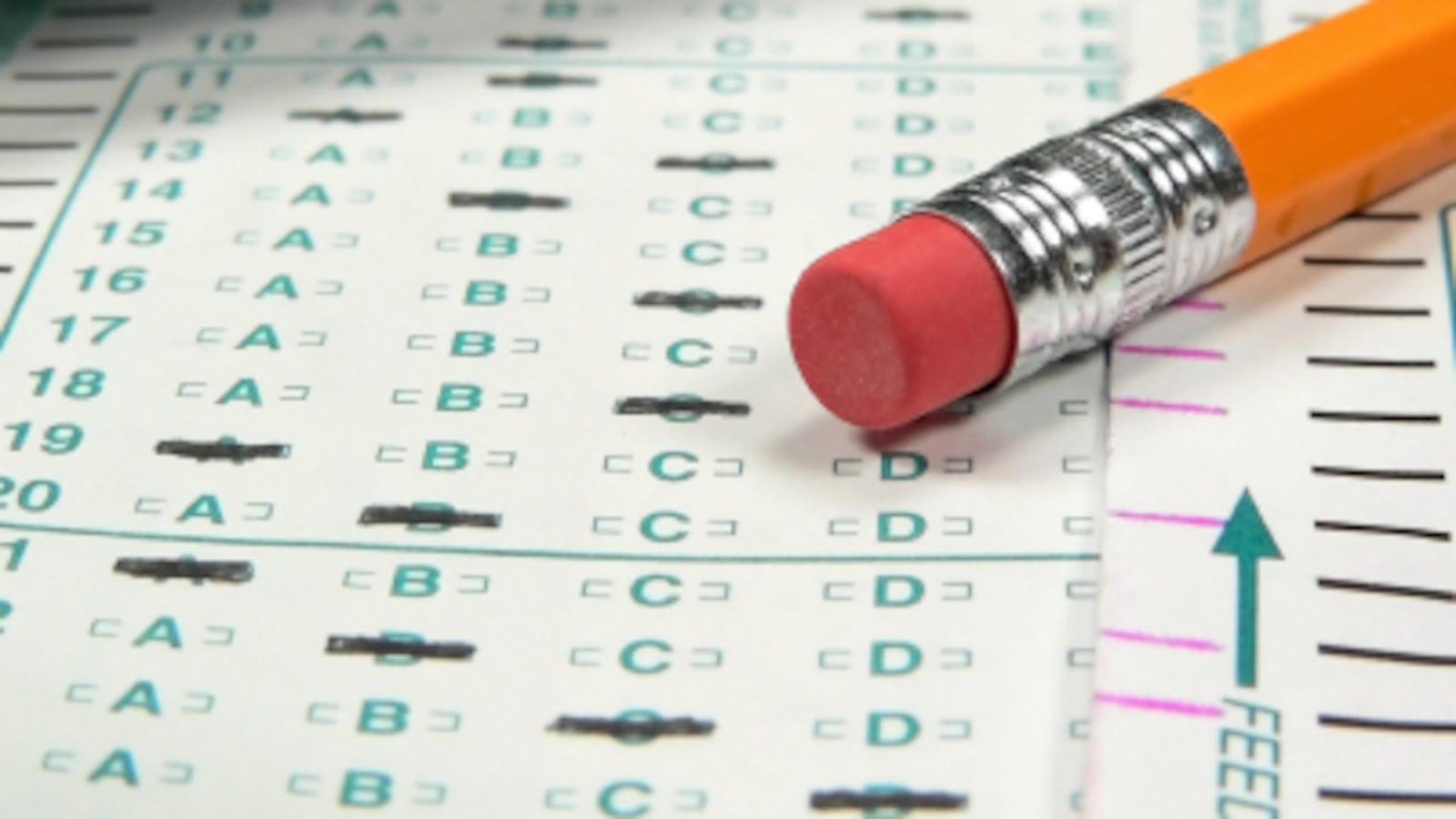While Tennessee has worked to transform its public education system during the last five years, its average ACT composite score stayed at 19.8 in 2015 and still trails the national average of 21 out of 36, according to results released Wednesday for the national college entrance exam.
Tennessee’s latest ACT scores went up slightly in reading and science, decreased slightly in English, and were unchanged in math among all its students who took the exam last fall and spring.
The average composite score of 19.8 is for both public and private school students.
Of the 60,405 Tennessee students who took the exam, 58 percent met the English benchmark, compared with 64 percent nationally; 38 percent met the reading benchmark, compared with 46 percent nationally. In math and science, 30 percent and 29 percent met the benchmarks, respectively, compared with 42 percent and 38 percent nationally.
In a statement, the Tennessee Department of Education emphasized that the average composite score for Tennessee’s 2015 public school graduates went up slightly, from 19.3 percent to 19.4 percent, consistent with a three-year pattern of growth.
“We are proud that our students are continuing to show growth on the ACT,” said Education Commissioner Candice McQueen. “It is particularly encouraging considering the urgent need for us to better prepare students for postsecondary education and the workforce. Our teachers and parents need better information every year to ensure our students are on track to be college and career ready.”
McQueen said that the department aims to raise the average ACT composite score to 21 by 2020, allowing more Tennessee students to earn the state’s HOPE scholarship which requires a minimum score of 21.
The state overhauled its education strategy after receiving the $500 million federal Race to the Top grant in 2010 and has been hailed as a shiny example of education improvement, partly because of its academic gains under the 2013 National Assessment of Education Progress (NAEP). But positive results under Tennessee’s new policies — which include lifting academic standards, tying student achievement scores to teacher evaluations, and state intervention to turn around Tennessee’s worst schools — have been spotty, at best, with ACT scores near-stagnant and state achievement reading scores on the decline.
One of a growing number of states where the ACT is mandatory, Tennessee requires its high school juniors to take the ACT in order to assess college-and-career readiness — the lynchpin of the state’s education agenda — and ensure that all students have the option of attending college, since the ACT or SAT are usually required for college admittance. A bill that would have made the test optional was shot down during this year’s legislative session.
Tennessee education advocates said the state’s students have shown steady improvement since 2011, and outpaced national trends on the college and career readiness measure.
“Clearly Tennessee is moving in the right direction, yet considerable ground remains to be covered. Only one in five graduates – one in six public school graduates – reached the level needed for success in higher education and work,” said Jamie Woodson, president and CEO of the State Collaborative on Reforming Education, an advocacy and research institution founded by former U.S. Senate Majority Leader Bill Frist.
Woodson said more high school students need to take additional rigorous courses such as advanced English and math, and that more middle school students should take science and math classes that prepare them for high school courses in science, technology, engineering and mathematics, considered key in developing STEM skills necessary to compete in today’s worldwide economy. In addition, she said Tennessee’s elementary students “need strong reading and literacy instruction that builds the foundation for all later learning.”
According to state officials, 17 Tennessee school districts scored an average ACT composite at or above 21, and 45 Tennessee school districts were above the state average of 19.4 for 2015 graduates.
Tullahoma City Schools posted the state’s largest gains from 2014 to 2015, raising the district’s average composite by two points to a 22.4. Germantown Municipal Schools had the state’s highest average ACT composite at 24.1.
Ranking highest among the state’s four largest urban districts, Knox County Schools had an average composite of 20.7, ranking the district 20th in the state. Shelby County Schools, based in Memphis and the state’s largest public school district, had an average composite of 17.7, tied for 12th lowest in Tennessee. In the last five years, Memphis has become a battleground for state and local efforts and investments to turn around a high concentration of low-performing schools.
The state Department of Education has made efforts in recent years to be more transparent in making students and parents aware of its students’ academic standing, in addition to upping the standards in order to compete nationally and globally.
Beginning this school year, Tennessee will roll out a new TCAP test for math and English language arts in grades 3-11. Known as TNReady, the test is designed to assess true student understanding, not just basic memorization and test-taking skills. State officials say TNReady will provide more and better information to parents on what students know and can do. In the test’s first year, officials expect achievement test scores to go down.
Nationally, more than 1.9 million students took the most recent ACT, representing an estimated 59 percent of the 2015 nation’s graduating class.
“While the percent meeting three or four ACT College Readiness Benchmarks went up slightly from 39% to 40%, the fact remains that fully 31% of the ACT-tested graduating class are not meeting any of the benchmarks, which will make it difficult for them in their post–high school experiences, the ACT said in its annual report.
You can see the ACT’s 2015 national report on college and career readiness here.
Editor’s Note: This story updates an earlier version to clarify that the average ACT composite score of 19.8 is for both public and private school students.

